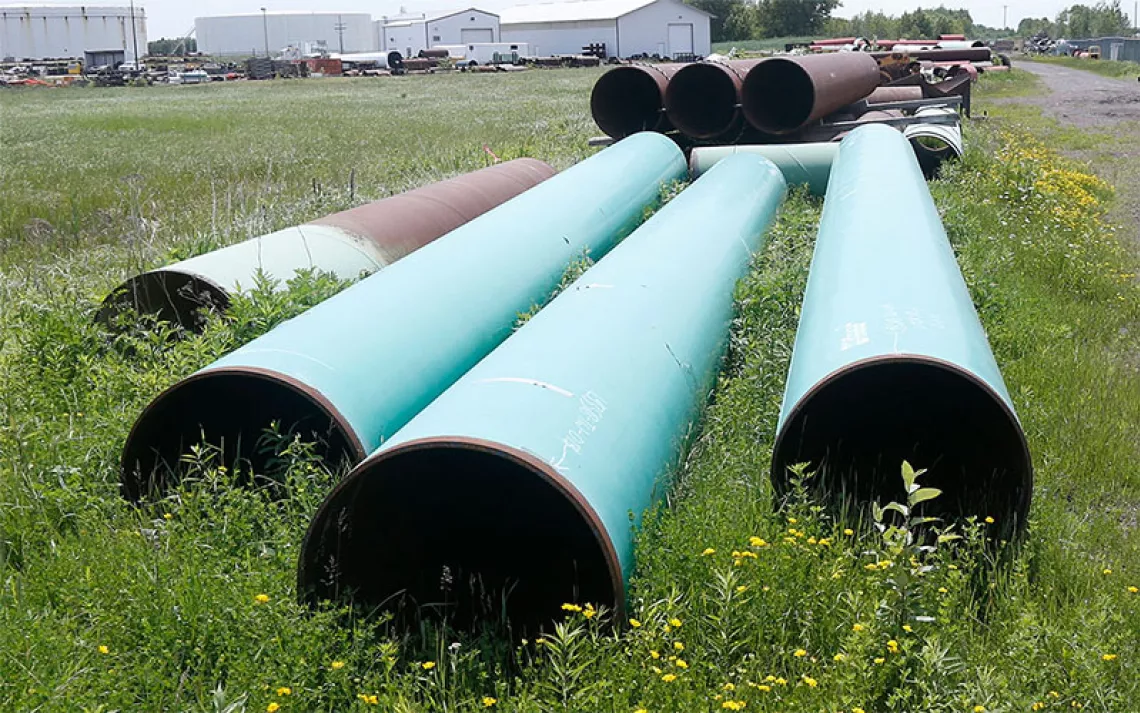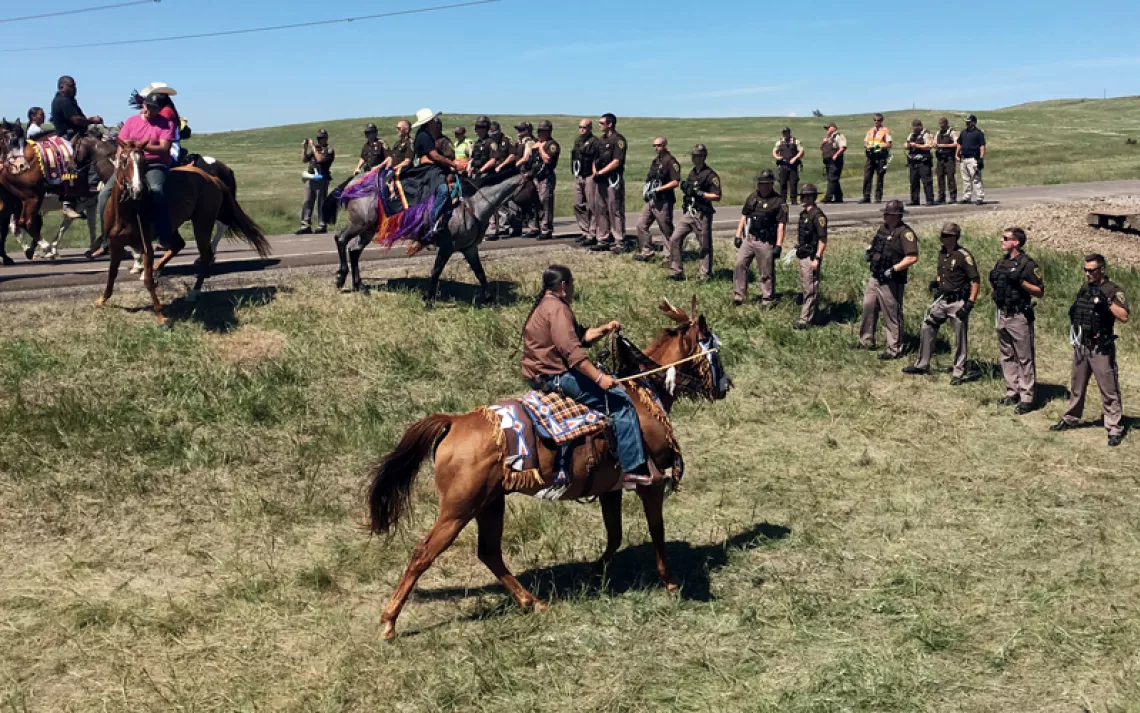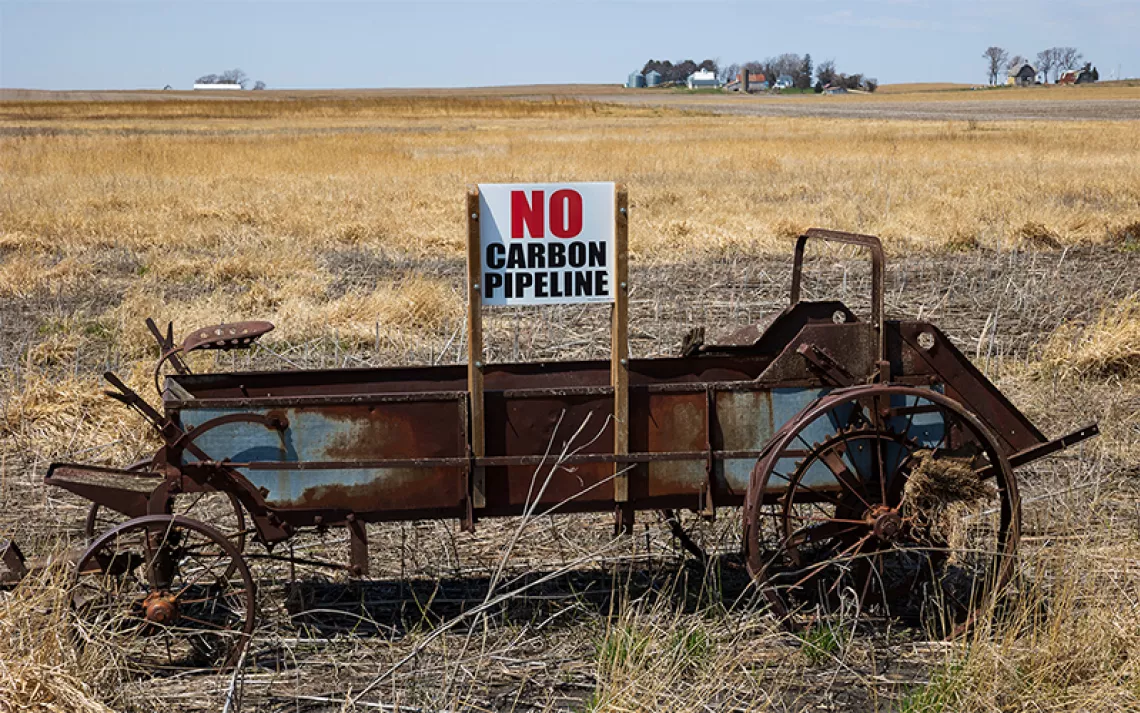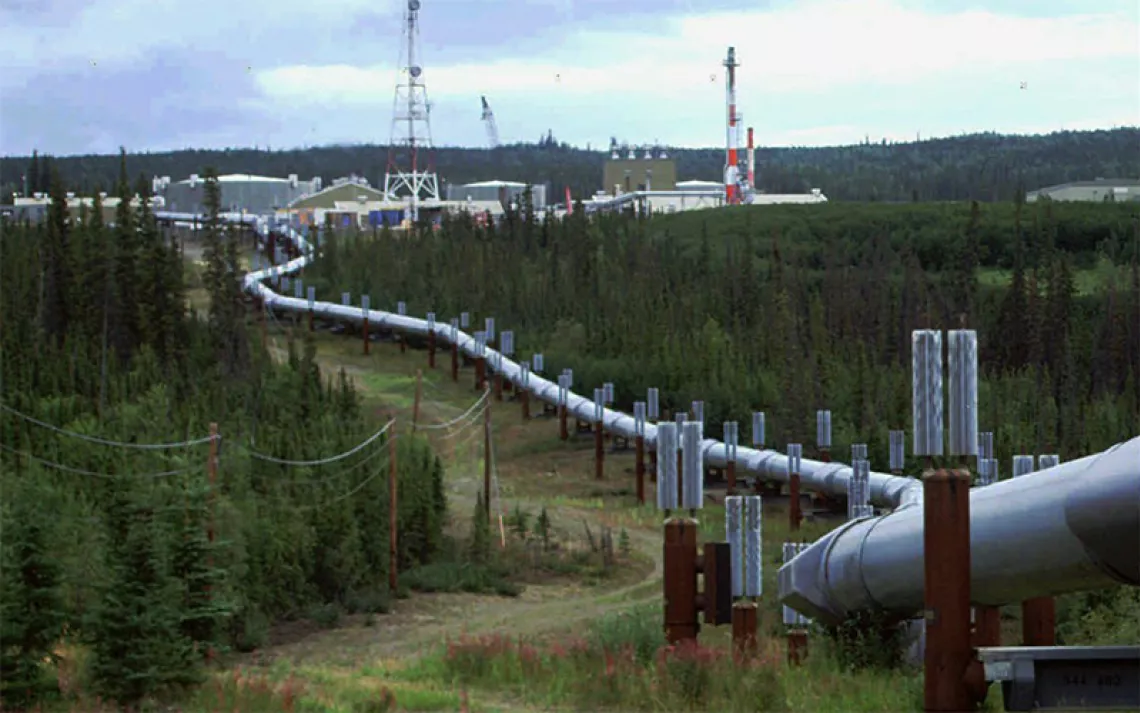In a Major Victory, Keystone XL Pipeline Canceled
After a 13-year battle, the zombie pipeline is finally dead
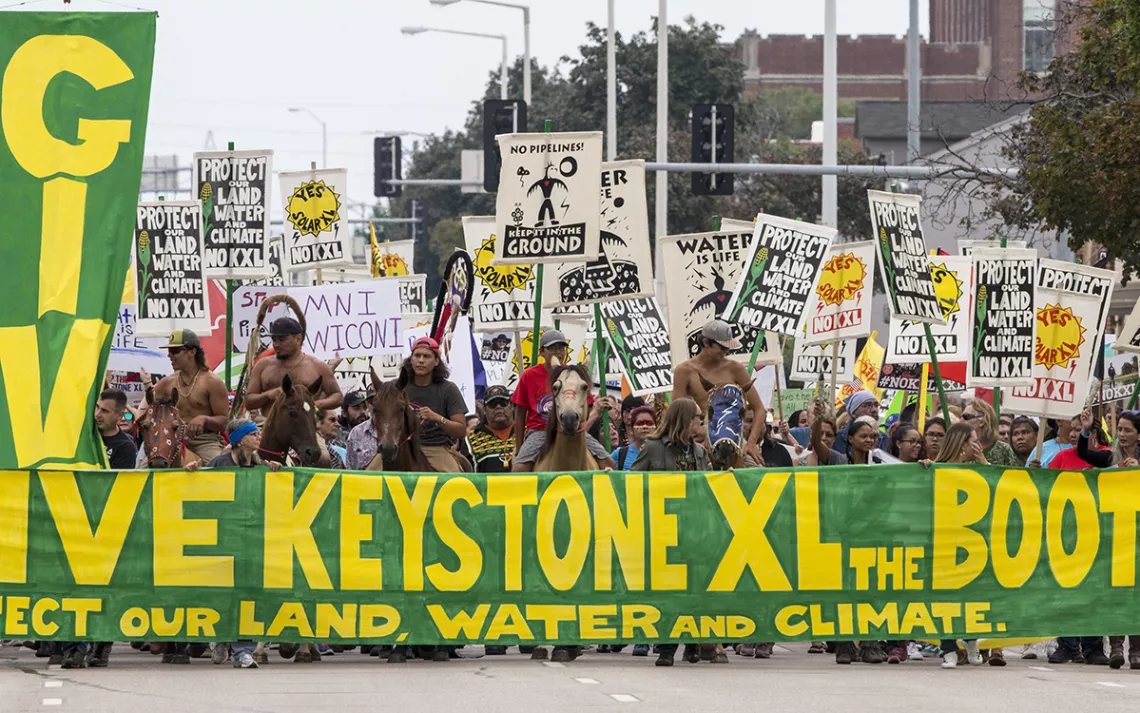
Photo by AP Photo/Nati Harnik
It took 13 years, the arrests of at least 1,238 environmental activists, and the shifting policies of three presidential administrations, but it’s finally official: The Keystone XL Pipeline is kaput.
On Wednesday, TC Energy, the Canadian company behind the pipeline, said that it had decided along with the government of Alberta to terminate the multibillion-dollar project.
The announcement ends the decade-plus-long fight against the pipeline that brought together a broad range of opponents. From Nebraska to Washington, DC, pipeline opponents waged their battles in cornfields, Congress, dirt roads, and the Supreme Court, winning on multiple fronts and helping to accelerate the fight against fossil fuel infrastructure across the United States. And even as they came with strikingly different points of view—farmers, ranchers, Indigenous leaders, and climate advocates—they delivered a common message: We can’t continue to prioritize the fossil fuel industry at the expense of lands, waters, and the climate.
“To actually have the project canceled in this way … I’m thrilled,” said May Boeve, the executive director of 350.org. “The industry has simply given up. They see the writing on the wall, and they are calling it quits.”
If completed, the 1,200-mile pipeline would have carried 830,000 gallons of oil from the vast tar sands mines in Alberta to refineries on the US Gulf Coast. The whole operation would have added more than 181 million tons of carbon-dioxide-equivalent greenhouse gas emissions to the atmosphere each year. Oil from the tar sands is some of the dirtiest on the planet, producing 20 percent more CO2 than conventional crude. Along the way, the Keystone XL Pipeline would have passed through Montana, South Dakota, and Nebraska, where it would have threatened farmland, drinking water, and wildlife habitat.
After a coalition of environmental organizations—including the Sierra Club—launched protests against the pipeline in 2011, the Obama administration rejected TC Energy’s application for a construction permit, with the caveat that the company could reapply for one. It did, and just weeks before the Paris climate talks were set to begin in 2015, Obama once again rejected the permit. “America is now a global leader when it comes to taking serious action on climate change,” Obama declared.
Then came Trump, who reversed Obama’s decision in early 2017. But TC Energy was thwarted again—this time by the US Supreme Court, which refused to fast-track construction of the pipeline, delaying it until 2021. Environmental activists started calling Keystone the “zombie pipeline,” because it was resurrected again and again. “What we’d planned as a one-off act of civil disobedience at the White House had now turned into a multiyear saga with no end in sight,” Jamie Henn, a cofounder of 350.org, recently wrote for this magazine.
On his first day in office, President Joe Biden rescinded the construction permit for the pipeline. That same day, TransCanada said it was suspending work on the line. The decision to end the project once and for all, the company said in a statement, came “after a comprehensive review of its options.”
The end of the Keystone XL Pipeline couldn’t come at a more significant time. Last month, scientists from the World Meteorological Organization in Geneva concluded that in the next five years the average global temperature will at least temporarily climb more than 1.5 degrees Celsius (or 2.7 degrees Fahrenheit) above pre-industrial levels—the threshold beyond which scientists say Earth faces irreversible damage. And in a sweeping report published just before the WMO study, the International Energy Agency—a generally conservative observer of global energy policy—said nations around the world would need to immediately stop approving new oil projects unless they want the trip beyond that 1.5-degree threshold to be permanent. In other words, any fossil fuels still in the ground need to stay there.
As the climate activists who took on Keystone know very well, the oil industry can’t get fossil fuels out of the ground without pipelines. “The end of Keystone XL is a testament to what we can accomplish when we come together with the shared goal of protecting our communities, our clean water, and the climate,” said Michael Brune, the executive director of the Sierra Club. “This is a major victory for our movement, and it won’t be the last.”
The defeat of Keystone could be a harbinger for similar fights against other oil pipelines. The fate of the Dakota Access Pipeline, which transports oil from North Dakota to Illinois, is currently being appealed in federal court. And in Minnesota, the Sierra Club, along with the Red Lake Band of Chippewa Indians and the White Earth Band of Ojibwe, is suing to stop construction of the Line 3 Pipeline, which would carry 760,000 barrels of crude oil a day over and under more than 200 bodies of water.
None of these fights are happening in a vacuum. For all intents and purposes, TransCanada has just handed the backers of other pipelines their notice. Keystone could very well be the oil industry’s Waterloo.
Boeve, who was arrested in front of the White House while protesting against Keystone in 2011, said the enduring legacy of the pipeline will be what she called the “Keystone-ification” of the climate fight. The climate activists who cut their teeth on Keystone will apply their experience to the fights against other pipelines. “The climate movement wasn’t always seen as a force to be reckoned with by the oil industry,” Boeve said. “Because of Keystone, that has changed. Our template for fighting these pipelines is now known all over the world by our opposition, and they are afraid.”
 The Magazine of The Sierra Club
The Magazine of The Sierra Club
